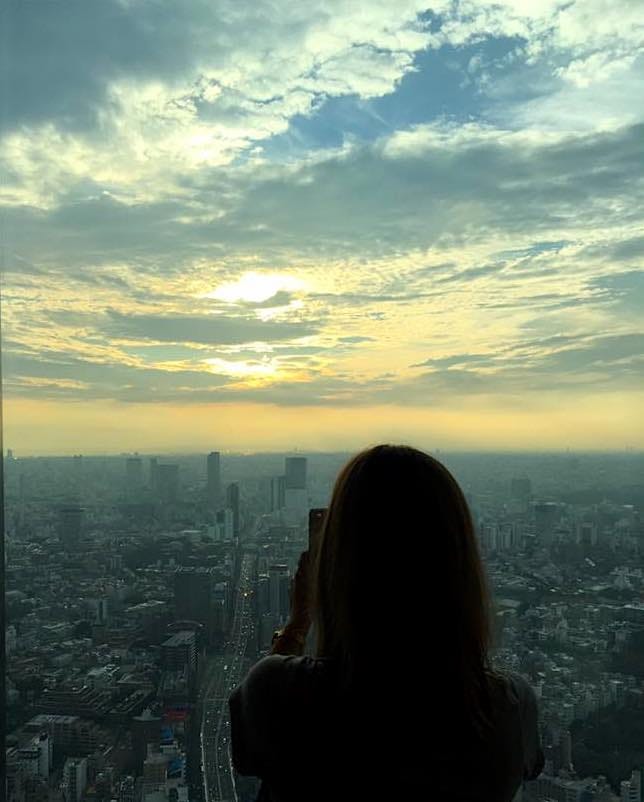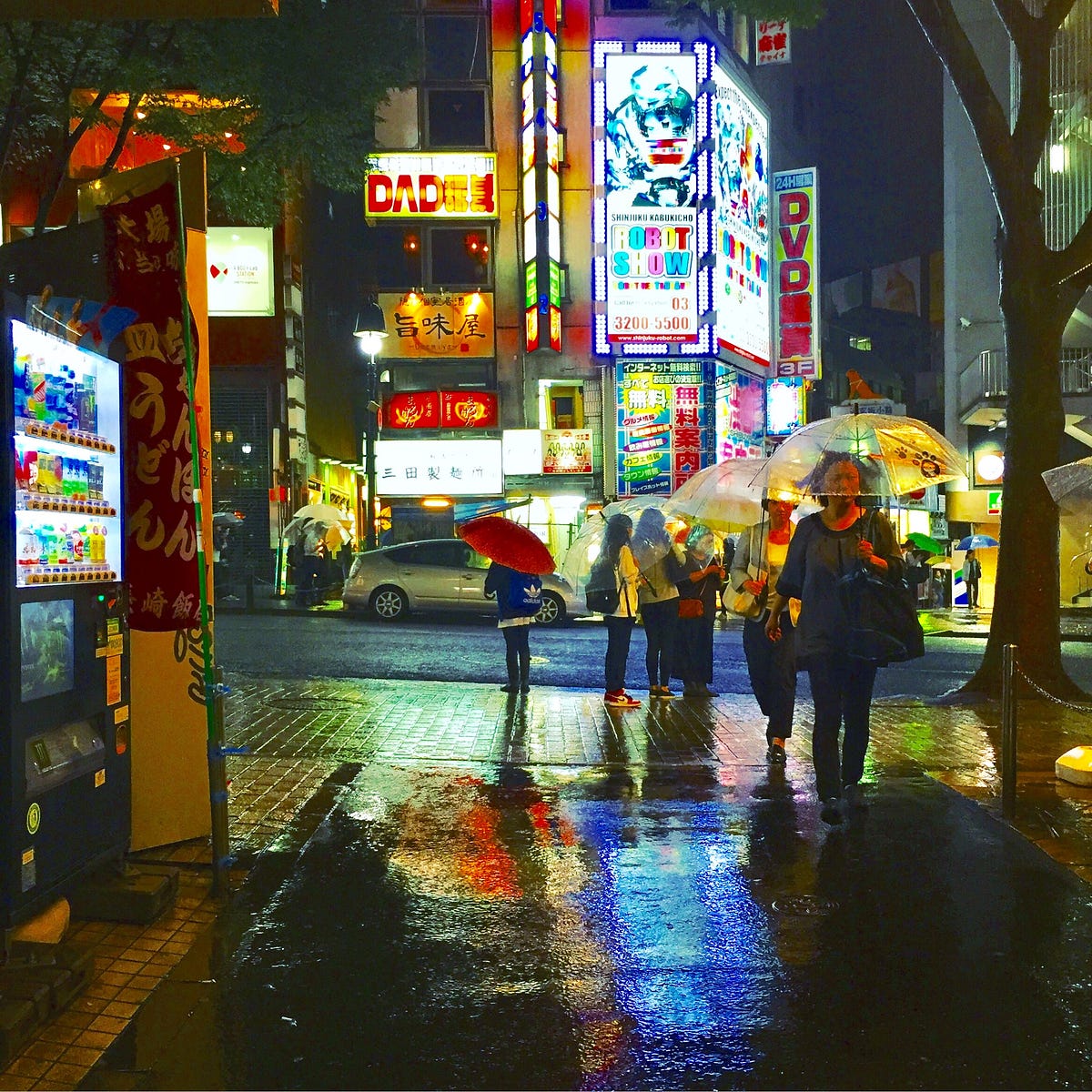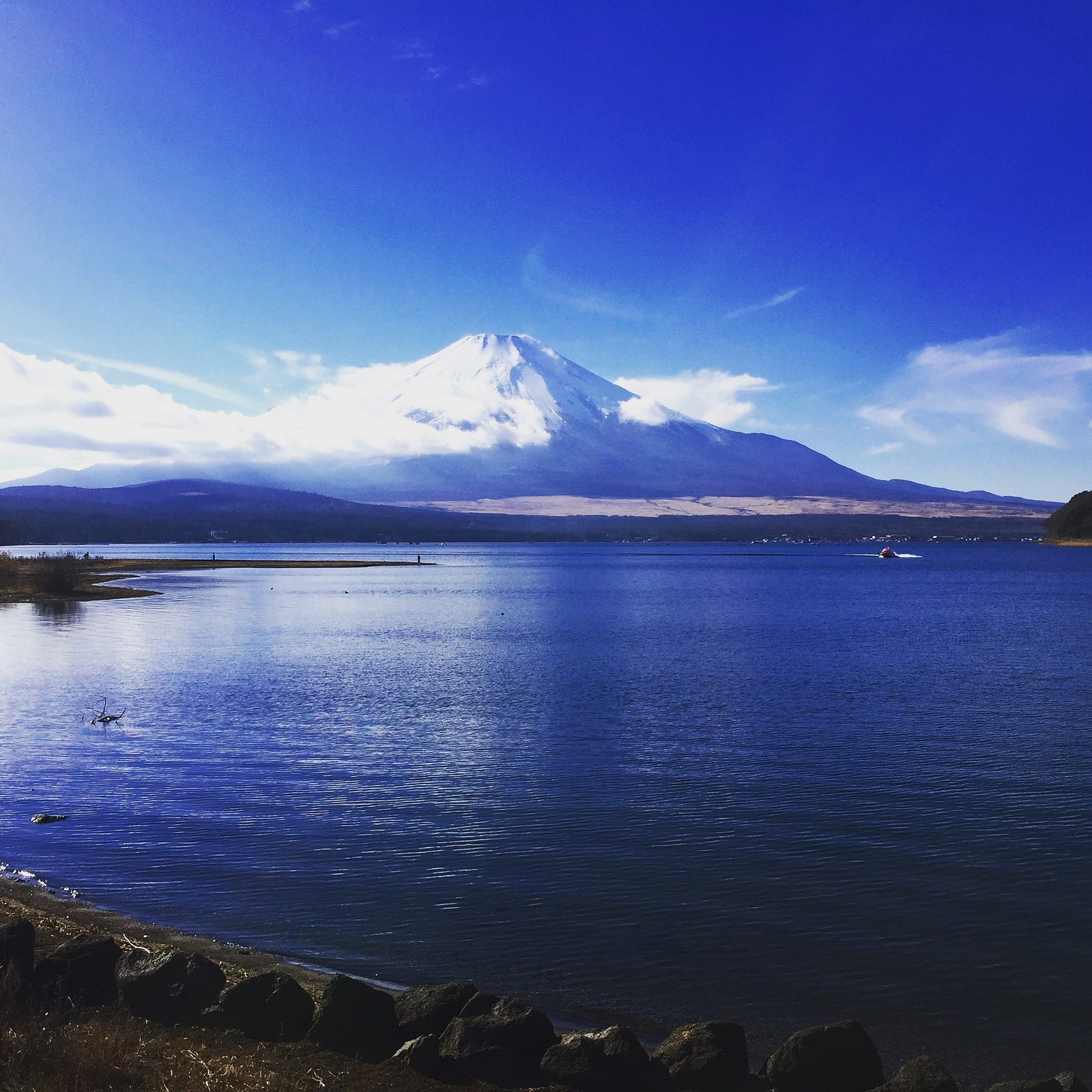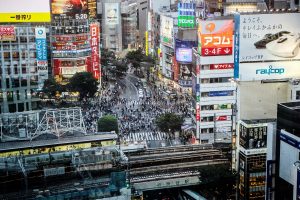A Japan Manifesto: Why Am I In Tokyo?

Capturing the view from Mori Tower, Roppongi Hills, Tokyo (Photo credit: Junko Nagao)
Since I moved to Japan over a year and a half ago, almost every business meeting I have had starts the same way. We file into a room, smile politely at each other, parade around the table to exchange business cards in the proper order, we sit down in our prescribed seats, and then there is an inevitable moment of awkwardness, followed by a perplexed stare, alternating between me, my Japanese colleague, and my business card.
In Japan, being polite, particularly in a business context, is of the utmost importance. I know people are not trying to be rude. I’m used to it by now, and I can’t blame them. I know I am unusual. The first question they ask is usually to slyly confirm that I am actually a Managing Partner of Fresco Capital. Given my age, my gender, and my most obvious foreign-ness, the fact that I am sitting across from them as an equal is undeniably shocking. The reactions are always entertaining — some are delighted, some are clearly offended, others in complete denial.
The first few months of this, my cheeks would burn in embarrassment as I responded politely to confirm my position and deliver the introduction of Fresco Capital, my heart filled with pre-emptive defensiveness and the chip on my shoulder aching deeply. Now, I revel in the routine and am grateful for my ability to use their response as a strong filter for potential partnership. You have to be open and curious to new things to find success in the world we live in today, and here I am, able to gauge that within the first thirty seconds of a meeting. Lucky me.
Then, comes their real question, accompanied by a puzzled brow and a heavy air of anticipation: “Allison-san, but why are you in Japan?” I used to dread this question, because just like anything in our quickly advancing world, the answer is complex and there are an infinite number of ways I could reply, most of which would not be relevant or appropriate for a business context. So, I experimented with different responses, carefully gauging the subsequent temperature of the meeting given a certain response, and attempted to rapidly iterate my way to a productive answer. At least I learned quickly that sarcasm is not well received here.
Connecting the Dots
“You can’t connect the dots looking forward; you can only connect them looking backwards. So you have to trust that the dots will somehow connect in your future. You have to trust in something — your gut, destiny, life, karma, whatever.”
— Steve Jobs

Reflections at the Imperial Palace, Tokyo.
Part of the problem was that, until very recently, I honestly didn’t have a full picture as to why I believed so strongly it made sense for me, and for Fresco, to set up our first new global office and team in Japan. Sure, I had an intense personal attraction to Japan, as well as a strong “Spidey sense” that there was a big opportunity for us to be one of the few global VCs in Japan. And whether it comes to people, investments, or partnerships, I’ve learned to trust my gut.
When we decided to bring Fresco to Japan, the dots looked a little bit like this:
Pros:
- I’ve wanted to live in Japan since I was ten years old, when I made a best friend at summer camp who was from Tokyo. She started teaching me about Japan, and I was hooked. I tried to move here after college, but couldn’t make it work, and ended up going to Goldman Sachs in New York City instead.
- I love sushi more than anything else in the world. Seriously, though.
- Tokyo air is cleaner than Hong Kong, and Japan is arguably the safest country in the world.
- We were just starting to raise a new fund, and there were interested investors in Japan.
- My partners were keen to expand our global presence and set up a new international office.
- Our portfolio companies were interested in expanding to Japan, or were already beginning the process, but needed help.
- My then-fiance’s employer asked him to move to Tokyo and long distance sucks.
Cons:
- My then-fiance became my ex-fiance, which was sad and embarrassing and very clearly crossed off more than one of the pros.
- As a result, I knew exactly zero people in Japan.
- I hadn’t spoken Japanese in nearly ten years.
- After finally building our reputation in Hong Kong and China, we would be starting from square one, yet again.
Now that I have been in Japan for a year and a half, we raised a fund from Japanese LPs, I built a team of the most intelligent, forward thinking, and well connected Japanese partners, and we have brought four of our portfolio companies to Japan, I am starting to see the dots crystallise into a critical pattern that clarifies that initial gut feeling of why I and Fresco and need to be in Japan right now.
So, Here’s Why:
Our role as venture capitalists and my personal role as a trailblazer and explorer of the unknown is to create the future. We are living in unprecedented times, and the ways of building value in the past are no longer working. Our personal lives, our governments, our corporations, our jobs, and our infrastructure are being transformed by fundamental shifts in demographics, technology, and globalisation. Consequently, these key trends are shaping the period in which we live, and Japan is the first country in the world delicately poised on the precipice of these changes, reluctantly forced to navigate this complex but critical new era.
Just what are these critical shifts how are they playing out in Japan?

Reflections at the Imperial Palace, Tokyo.
1) Demographics
As a society, we created a series of formal structures to help individuals navigate their lives on Earth. These include the construct of marriage, a formal education system, corporate careers, pensions, and healthcare. Today, people are living longer, women are economically empowered, birth rates in developing countries are declining, and the Baby Boomer generation is retiring. These trends are forcing us to re-examine how and why we plan our lives and redefine the social and political structures that we have traditionally relied upon.
Japan is on the cutting edge of this trend. Long known for their health and long life expectancy, a child born in Japan today has a 50% chance of living to 109, the longest in the world. Simultaneously, birth rates in Japan have declined and the overall population is now declining at the fastest rate globally. Every year, Japan sells more adult diapers than baby diapers. How will the jobs market and government infrastructure adapt? A retiring generation of Baby Boomers is dramatically stressing pensions and healthcare, which were previously predicated upon an assumption that the current working population could support retirees. How will the country cope and how will infrastructure need to transform to support these unexpected trends? I don’t know, but we will soon find out.
2) Urbanization
As outlined in The 100-Year Life, “We are quietly witnessing the most extraordinary migration that humanity has ever experienced… from the countryside to the city.” In 2010, 3.6 billion people lived in cities, but by 2050 that number will be 6.3 billion. This is changing the shape and needs of urban infrastructure, and technology pays a key role in creating efficiencies that did not exist before.
Again, Japan is on the forefront of this trend. With over 38 million people, Tokyo is the largest city in the world. As of 2015, 93.5% of the population in Japan lives in cities (compared with a global average of 54%, 81% in the United States, and 55% in China). Not only that, but the migration continues as the population ages and technology jobs are proliferating in urban centres. Tokyo’s population is increasing at nearly 1% per year, and 90% of the people moving to Tokyo are between the ages of 15–29, even as the general population of Japan is rapidly declining.

Ueyama, Okayama. Rural areas have been hit hardest by the stagnating economy.
3) Stagnating Economic Growth
After the Great Financial Crisis rocked the US economy, then Europe, then the rest of the world, we have entered an unprecedented time of economic stagnation. Governments have responded by cutting interest rates to near-zero, and this has impacted the growth and development financial markets, savings rates, inflation, and GDP growth. Though the US and Europe are only now starting to grapple with the long term effects of these policies, Japan has been plagued by these trends for years and is now being forced to find new ways to climb out of its economic rut.

Vending machines and advertisement for the Robot Show, Shibuya.
4) Technology & Automation of Jobs
The internet is a relatively recent invention, but the change it is bringing on the world is accelerating rapidly. Personal computers have democratised access to information and resources, and social networks have opened up opportunities and connections that were previously seen as proprietary. Technology has impacted or been integrated into all products and services, and in this sense, every company is now a technology company in some way. As a result, every job is now a technology job, many jobs are now being automated or replaced completely, and new jobs are emerging on an hourly basis.
Both historically, with the automation of the manufacturing process, and socially, with the Japanese cultural fascination with robots, Japan has adapted and even embraced automation unlike any other country in the world. With a generation ready to retire, Japan is in a position to remain a thought leader in this sense. By 2060, the population in Japan is expected to be 87 million, a dramatic reduction from a high of 127 million. As stated in the 100-Year Life, “rather than worrying that robots are going to take our jobs, we should be delighted that they are arriving just in time to boost a flagging working population and maintain output, productivity, and living standards.” Indeed, if there is anywhere in the world where that may be true, it is Japan.

The Olympics are forcing Japan to think more globally.
5) Globalisation
As evidenced by the refugee crisis in Europe, global trade, the outsourcing of jobs, the current proliferation of cyberattacks, shifts in commodity prices, and the increase in correlation of global financial markets, the world is more connected than ever. People are scared, national identities are being threatened, and politicians are struggling to figure out how to adapt. As evidenced by Brexit, the election of Donald Trump and the subsequent impending reality of a wall, we are now facing resistance to globalisation in the form of isolationism and anti-immigration policies.
Though it remains to be seen how this will impact the US or European economy, for better or worse, this inward-looking, nationalistic approach is not new to Japan. The impact it has had on economic growth and innovation is alarming, and with the 2020 Olympics looming, Japan is now facing a critical moment where its leaders are seeing that opening up to the rest of the world is the only option. Again, what this looks like and how Japanese society, culture, and the economy will adapt remains to be seen. But the time to find the answers is now.
Conclusion: An Era of Questions
“Be patient toward all that is unsolved in your heart and try to love the questions themselves, like locked rooms and like books that are now written in a very foreign tongue. Do not now seek the answers, which cannot be given you because you would not be able to live them. And the point is, to live everything. Live the questions now. Perhaps you will then gradually, without noticing it, live along some distant day into the answer.” — Rainer Maria Rilke, Letters to a Young Poet

The view of Mt. Fuji from Yamanaka Lake, Yamanakako
More than ever, the future is plagued by questions. How will we, as both individuals and societies, adapt to these critical shifts in the the fabric of our world? What will the future look like and what role should we play in creating it? Many people travel the world looking for answers. What I have learned is that, thanks to the internet, Google, and good old human egos, answers are everywhere. However, given the complexity and interconnectedness of this next stage of growth, none of them are fully relevant.
My raison d’être in Japan is not to find the answers — because, there are none (yet). More importantly, living and working in Japan is forcing me to face and engage with the most difficult questions facing our generation. Just like I had to iterate my way to the proper response to, “Why am I here?”, Fresco’s presence in Japan is allowing us, our partners, our investors, and our portfolio companies to test solutions at a pace not possible anywhere else in the world. Hopefully, what we discover together will prove to be one of the most valuable exports Japan has ever seen.

